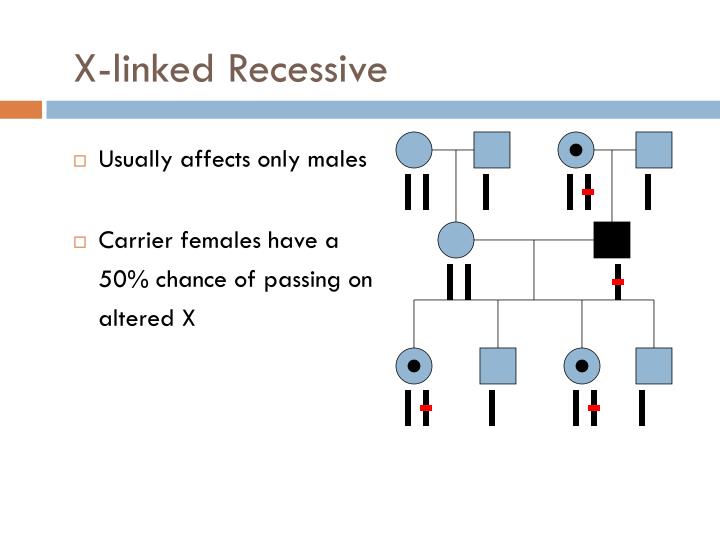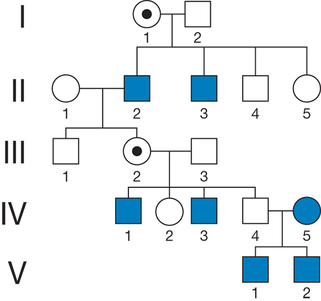


If only one parent is a carrier of the altered gene and the other parent does not carry the variant, none of their children will develop the condition, and the chance with each pregnancy of having an unaffected child who is a carrier is 50 percent. The chance with each pregnancy of having an unaffected child who is a carrier of the disorder is 50 percent, and the chance that a child will not have the disorder and will not be a carrier is 25 percent. In these cases, the child's parents are unaffected, but the child may pass on the condition to his or her own children.Īutosomal recessive inheritance: Two unaffected people who each carry one copy of the altered gene for an autosomal recessive disorder (carriers) have a 25 percent chance with each pregnancy of having a child affected by the disorder. However, in some cases an autosomal dominant disorder results from a new (de novo) variant that occurs during the formation of egg or sperm cells or early in embryonic development. The chance that a child will not inherit the altered gene is also 50 percent. For example:Īutosomal dominant inheritance: A person affected by an autosomal dominant disorder has a 50 percent chance of passing the altered gene to each child. One important factor is how the condition is inherited. This can be difficult to predict in some cases because many factors influence a person's chances of developing a genetic condition. Philadelphia, PA: Elsevier 2020:chap 35.When a genetic disorder is diagnosed in a family, family members often want to know the likelihood that they or their children will develop the condition. Sex-linked and nontraditional modes of inheritance. Creasy and Resnik's Maternal-Fetal Medicine: Principles and Practice. In: Resnik R, Lockwood CJ, Moore TR, Greene MF, Copel JA, Silver RM, eds. Human genetics and patterns of inheritance. This is called "skewed X-inactivation." These females may have symptoms similar to those of males, or they may have only mild symptoms.įeero WG, Zazove P, Chen F. However, this is not technically correct.įemale carriers can have a normal X chromosome that is abnormally inactivated. The odds of either of these two scenarios are so low that X-linked recessive diseases are sometimes referred to as male only diseases. 100% chance of the child having the disease, whether boy or girl.If both the mother and the father have the disease, the expected outcomes are: In each pregnancy, if the mother is a carrier and the father has the disease, the expected outcomes are: This could occur in the two scenarios below. An abnormal gene on the X chromosome from each parent would be required, since a female has two X chromosomes. This means that none of his children would actually show the signs of the disease, but the trait could be passed to his grandsons.įemales can get an X-linked recessive disorder, but this is very rare. 50% chance of a having a girl without the disease who is a carrier.If the father has the disease and the mother is not a carrier, the expected outcomes are: 25% chance of a carrier girl without disease.In each pregnancy, if the mother is a carrier of a certain disease (she has only one abnormal X chromosome) and the father is not a carrier for the disease, the expected outcome is: Diseases such as hemophilia and Duchenne muscular dystrophy occur from a recessive gene on the X chromosome.

Because of that, it doesn't protect the male. However, the Y chromosome doesn't contain most of the genes of the X chromosome. The Y chromosome is the other half of the XY gene pair in the male. A single recessive gene on that X chromosome will cause the disease. X-linked recessive diseases most often occur in males. Inheritance - sex-linked recessive Genetics - sex-linked recessive X-linked recessive The term "sex-linked recessive" most often refers to X-linked recessive. Carriers can pass abnormal genes to their children. Someone who has one abnormal gene (but no symptoms) is called a carrier. If only one gene in the pair is abnormal, the disease does not occur or it is mild. The abnormal gene dominates.īut in recessive inheritance, both matching genes must be abnormal to cause disease. X and Y are sex chromosomes.ĭominant inheritance occurs when an abnormal gene from one parent causes disease, even though the matching gene from the other parent is normal. Sex-linked diseases are passed down through families through one of the X or Y chromosomes.


 0 kommentar(er)
0 kommentar(er)
